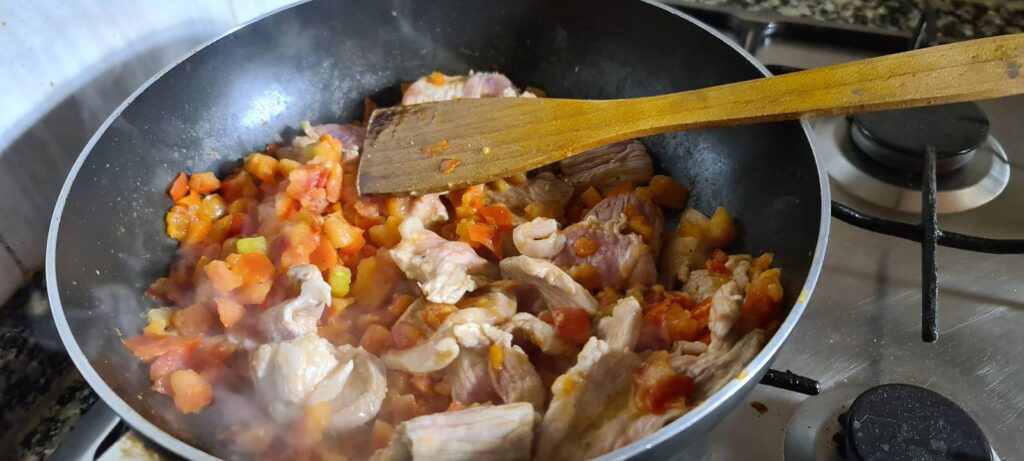To loose weight you need to be a caloric deficit. You need to spend more energy than you consume.
But to loose just fat (instead of muscle and fat) you need to also train at the gym, eat lots of protein and have good sleep.
In this article, through explaining my plan and execution of my second planned cut, I’m going to show you how you can do the same.
The objective
So before entering in this cut I started at around 84Kg or 185lbs, and had a bit of extra fat resulting from the bulk I did. My very rough estimate is that in this condition I’m around ~20% body fat.
The objective is to get to around ~10%. In other words, being as lean as possible without crossing the that line that it just gets more and more difficult for just a bit more results, typically starting at around 10% for some guys.
I don’t have a time target for this, unlike when I’m coaching guys, because I already know what I’m doing and I’m just going to follow by body, meaning that I’ll adjust the rate of fat loss based on how tired I’m getting basically.
That being said I’m trying to stay under a ~4% loss of my total weight a month, so 3Kg or around 6lbs max a month.
The nutrition
Before I talk about my nutrition here is a disclaimer:
DO NOT JUST COPY WHAT I’M DOING, IT PROBABLY WON’T WORK FOR YOU.
I’m just giving some examples and even more importantly explaining the thought process of how to loose fat
Use my examples as a way to figure out a plan for you, not as an exact recipe to follow.
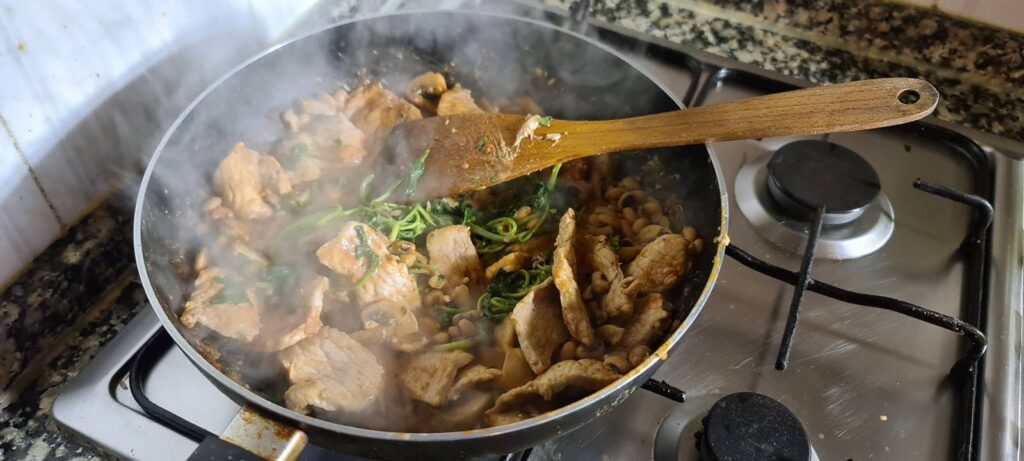
So my diet will consist of basically 3 meals a day, everyday as follows:
Breakfast:
Soy milk with extra protein (5g of protein per 100ml) and a spoon of whey protein.
Around ~30g of protein.
Lunch:
3 ( if I need I can reduce to just 2) big sandwiches with ham, a bit of light cheese, some pickles and or tomato, and some sauce to give more flavour.
Around ~50/55g of protein.
Dinner:
At least 500g of meat (I’m starting with more red meats and then switch to less fatty meats as need be), some beans, tomato sauce, some vegetables (usually spinach, mushrooms or broccoli), totalling usually around ~1.1Kg or 2.4 lbs of solid food at dinner.
Around ~100g of protein.
When I’m feeling extra hungry during the day or before bed I’ll have some fruit ready to eat.
So in total around ~180g of protein which gives a total of around 2.1g of protein per Kg of bodyweight, or around 1g per lb of bodyweight, per day.
Some numbers you might see on the internet are around those values. For fat loss, my current recommendation (based on Jeff Nippard’s numbers) is at least 1.6g of protein per Kg of body weight per day.
Before talking about specific foods, realize one thing:
what matters is the sum of all the foods you eat over time. It’s not any particular food that will get you leaner. That doesn’t exist.
That being said there are foods that make this process easier and others that can make it harder.
I’m generally talking about foods that have a lot of mass and or volume that have low calories (so lower calorie density) those help in managing hunger.
Foods that don’t help so much are foods that you just eat a tiny bit and already you consumed a lot of calories (higher calorie density). This makes it difficult to control hunger.
Some foods that help in this process:
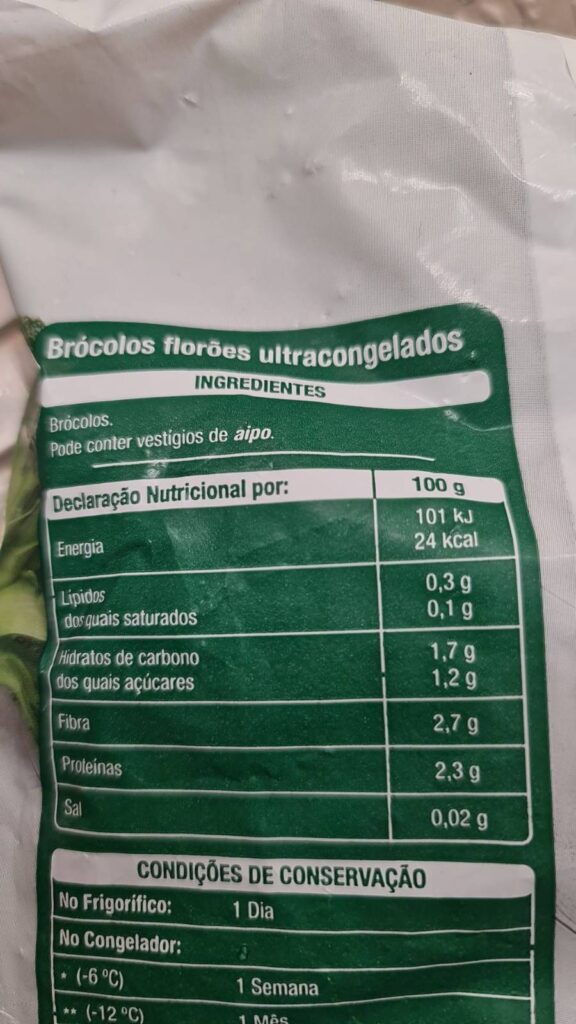
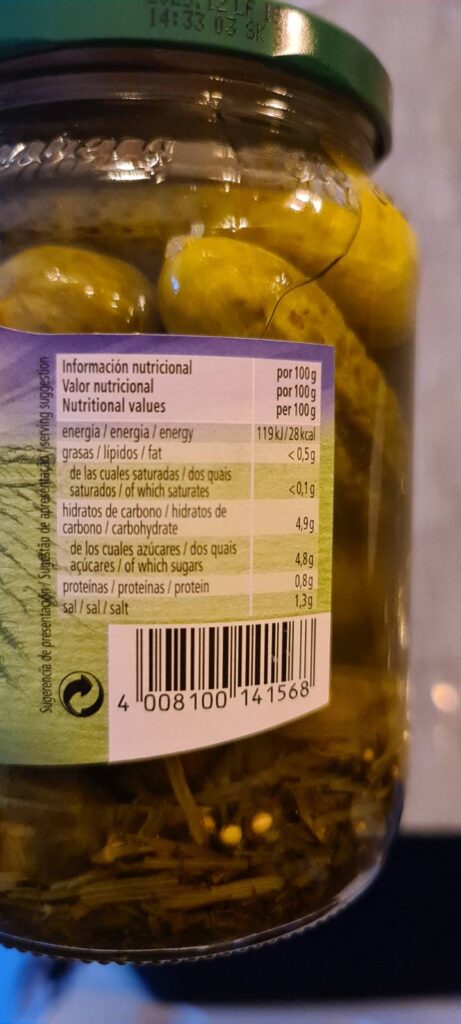
For example broccoli with just 24kcal per 100g, that I’m using to substitute pasta at dinner that would be (depending on how it’s cooked, on how much water it has absorbed) maybe around ~150kcal per 100g. So even if I eat the same amount of both, in the brocolli’s case I’m consuming a lot less calories.
That’s those kinds of substitutions that you want to make.
You should not, generally speaking, reduce the amount of food you are eating. That will make it very hard to actually pull of a diet where you reduced significantly the total amount of food you are eating.
What you should do instead is switch foods, from high calorie density to low calorie density.
But pick foods you enjoy, otherwise it’s also going to be difficult.
Some foods that make it harder:
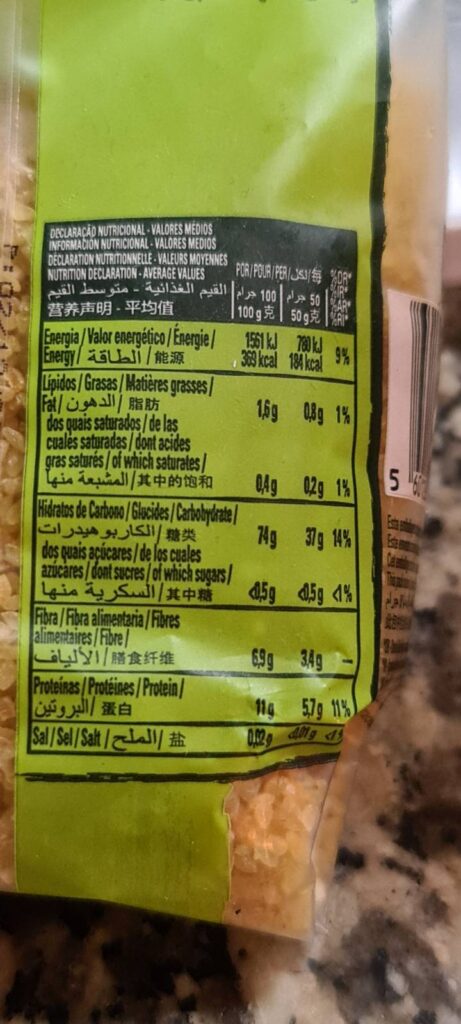
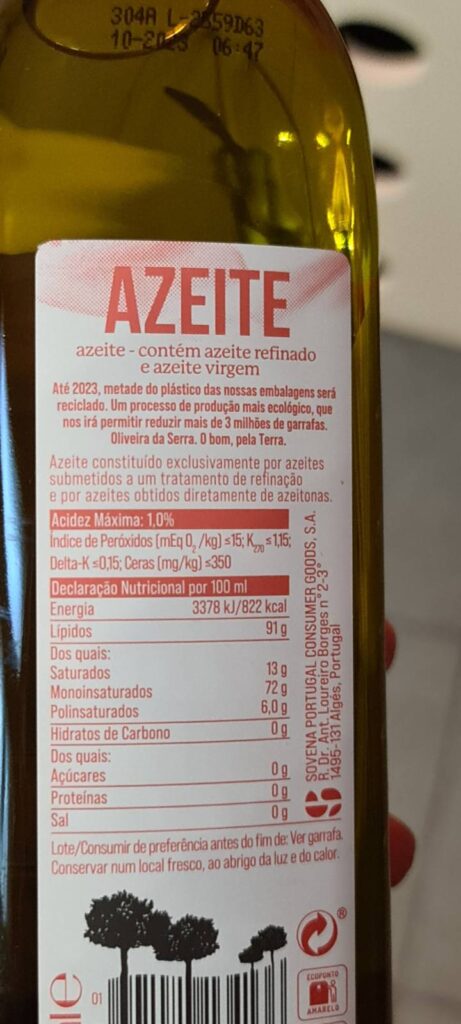
In the olive oil example, with 822kcal per 100ml, you can just put a tiny bit of olive oil in the pan, maybe something like 20ml, so 164kcal, and your stomach won’t tell the difference.
Yes the food will be tastier comparing without any olive oil and without any substitute oil, but it won’t make any more full, despite the extra 164kcal
If you were to take that amount of calories and consume it instead on brocolli, you would eat almost 700g of brocolli or 1.5lb.
That’s why during my cuts I don’t use stuff like olive oil or butter, because a very tiny amount will already have me consume a lot of calories that I could be consuming in other foods, such as fruits and vegetables, that would make me a lot more full.
The template meal concept
So for some people that meal-prep for the entire week that’s easier to do.
You just say what you want to eat and in what amounts, prepare everything, weight everything, and put it in containers so it’s ready to eat.
When it comes time to eat you don’t need to think about it.
Now, if you are reading this article you probably don’t meal-prep, and neither do I (from experience I know I don’t like to eat food that’s been prepared some days past).
Hence having some template meals helps a lot.
It’s basically the same thing but you prepare them in the same day.
For example:
My template dinner consisting of 500g of meat, some beans and vegetables, with the amount that makes me full.
If everyday I had to think about a different “recipe” and a very different combination of foods, I would have a lot more work to track everything.
This way, having done the calculation previously (for the protein at least), I know that I’m getting enough protein and just adjust the amount of vegetables in order to feel full for that day.
Comparing to deciding everyday what I’m going to cook it’s a lot easier. In the moment I just decide the amount of vegetables I’m using for the day and maybe switch one vegetable for another.
That’s why in my approach to fat loss, I don’t track my calories.
I just track the protein and then I track my weight at the scale, to know the results of the food I eat. Just make sure to eat enough fats also:
It’s easier to just control downstream, at least for me. Also in my coaching experience I know that tracking calories can be a difficult process. Weighing yourself once a day is easier.
The weekend problem
I’m going to explain this with one of my analogies:
Let’s say you have one objective, to save more money.
You currently spend, on average, the same amount of money a day as you make.
Let’s say that number is 100 dollars. You spend and receive 100 dollars everyday.
This way you are not increasing your savings overtime, and you want to do that.
Now you set up a plan: you are going to spend less money on things that you don’t need as much, maybe some money at restaurants or other extras, in order to save some money but also trying to maintain the same quality of life.
You say: “I’m only going to spend 50 dollars a day instead of 100!”. Great let’s go.
Let’s say that you can actually pull that off 6x a week, but every Sunday you say “Fuck it, I already saved money on the previous 6 days, this is the day I can treat myself, I’m going to buy a new bike for 400 dollars!”
Now let’s do some math: 6×50 = 300. In the six days you said you were in a “budget deficit”, in total you saved 300 dollars.
But what if the bike costs 400 dollars? You just spend more money than you received in that week.
Your work during the saving days was wasted.
It doesn’t matter how many days you saved money (6 in total in this case), what really matters is how much money you received and spent during that week (you ended up spending more money than you received for that week) and also over the coming weeks.
This is the weekend problem.
It doesn’t matter how many days you were following your diet, what really matters is are you, in total, spending more calories than you consume over weeks and months.
And now you say:” but that’s kind of an unrealistic example, because the bike costs 8 times more than the amount you saved in a day. It’s a very large expense that wouldn’t really happen in a situation like that”.
Well, when you have foods that have almost 30x more calories than others, I don’t think so.
You can very easily, in just 1 meal, eat more calories than those you “saved” during the entire week.
I had this problem myself before I knew what I was doing.
I would achieve a calorie deficit during the week, but when the weekend came I was so hungry that when I ate very tasty foods (like ice cream) I had huge cravings and ended up eating like 3 or 4 ice creams in a row.
This resulted in what’s sometimes called the ”yoyo diet”, were you go up and down but don’t really go anywhere overtime.
To make sure I don’t make the same mistake I won’t eat very tasty foods when I’m feeling hungry. Otherwise my appetite goes out of control.
Instead I’ll have some low calorie pudding and “zero sugar” soda when I’m feeling like eat a desert.
That does it for me.
Resistance training
It’s in the kitchen that you loose weight, but it’s in the gym that you make the muscle stay so that you only loose fat (in very simple terms).
So my plan for the gym is similar to what I was doing before. 4 days a week trying to hit every muscle group 2x a week. Nothing fancy, it doesn’t need to be.
So in summary (apart from slightly reducing overall volume and having to train with injuries that limit some exercises) I am not changing the gym approach when compared when I was gaining weight.
The Mindset
When compared to my first attempt at a planned fat loss phase, this time I’m not doing any other “big” things in my life, apart from the objectives I have in my studies (and this business).
This is because, when doing a fat loss phase, you shouldn’t have too much on your plate (metaphorically speaking). Especially if you are doing this for the first time, and/or if it’s a more aggressive rate of weight loss, like 3 or 4% a month (or more).
It’s just gets to difficult. Or at least can be in some scenarios.
So before attempting to do this try to clear out some other goals first.
In the previous attempt at fat loss I had at the same time 3 main goals: 1 social, 1 related to university, and the fat loss, getting to around ~10% body fat. It was too much. There was one point I reached that I wasn’t progressing in any of those.
Conclusion
If you want to loose weight, the nutrition is the most important thing.
You can increase your activity levels (especially with light cardio, like walking) to also spend more energy, but the focus needs to be what you eat.
You need to also be going to the gym, eating sufficient protein and having good sleep in order to not loose muscle, just fat.
Start to understand nutrition so it’s easier for you to loose weight.
Take my mistakes into account when doing this yourself.
Now lets’ get ripped.

